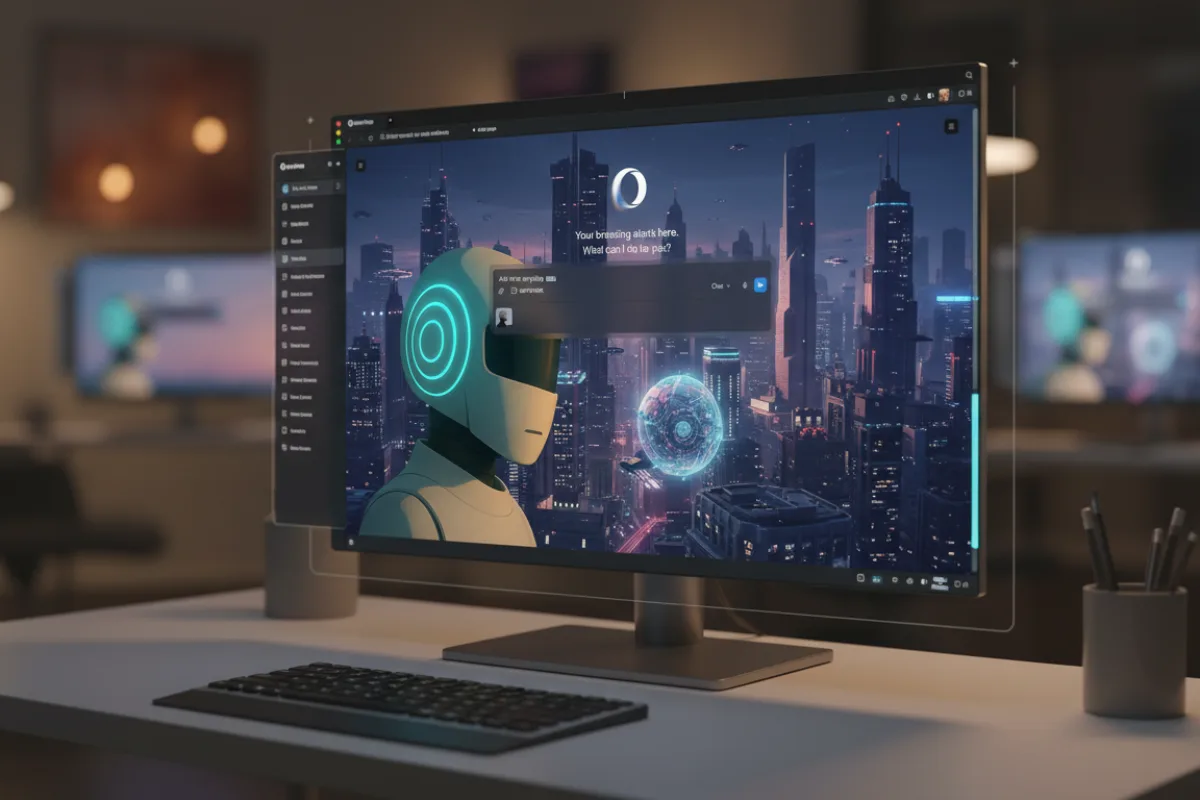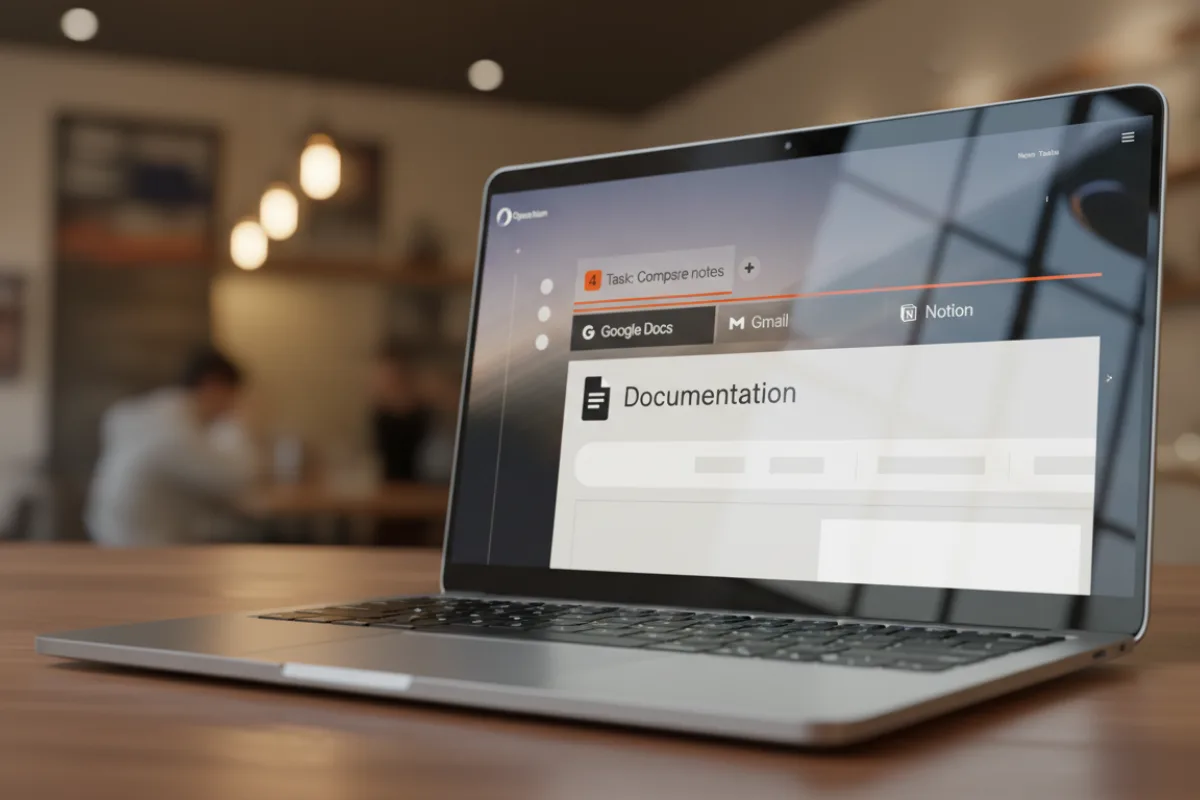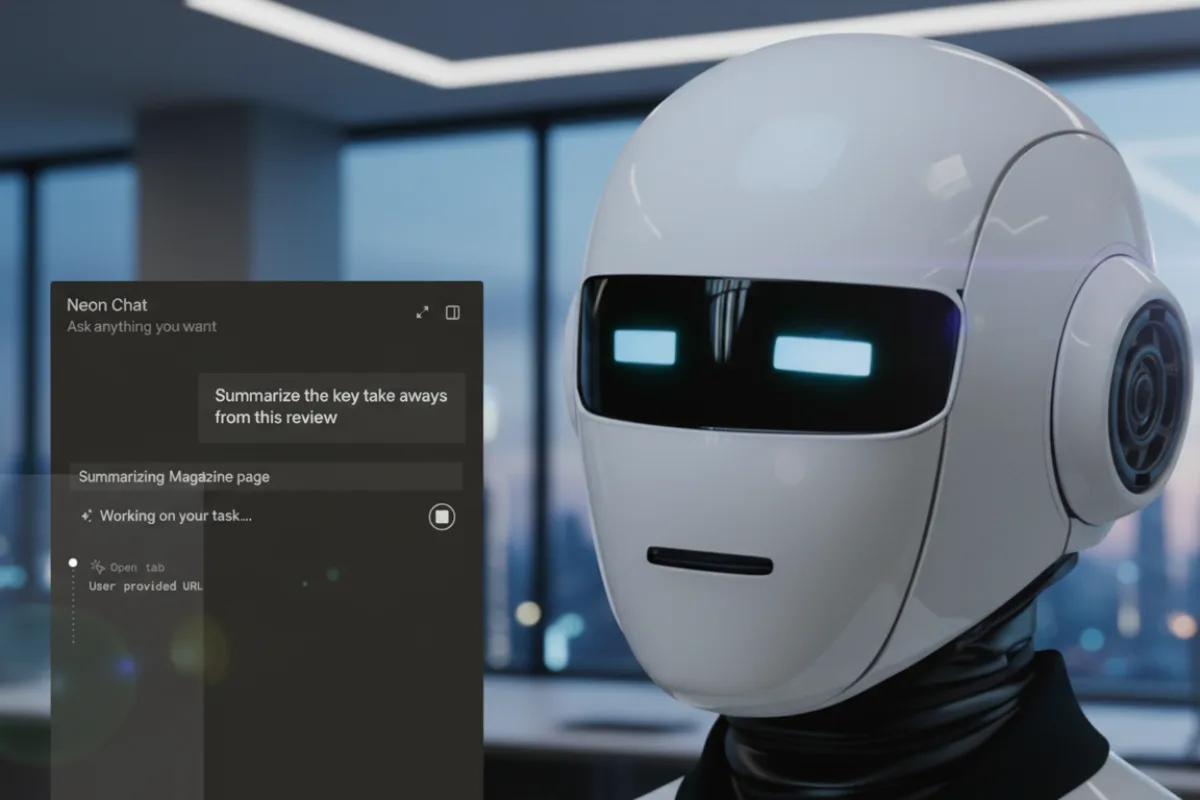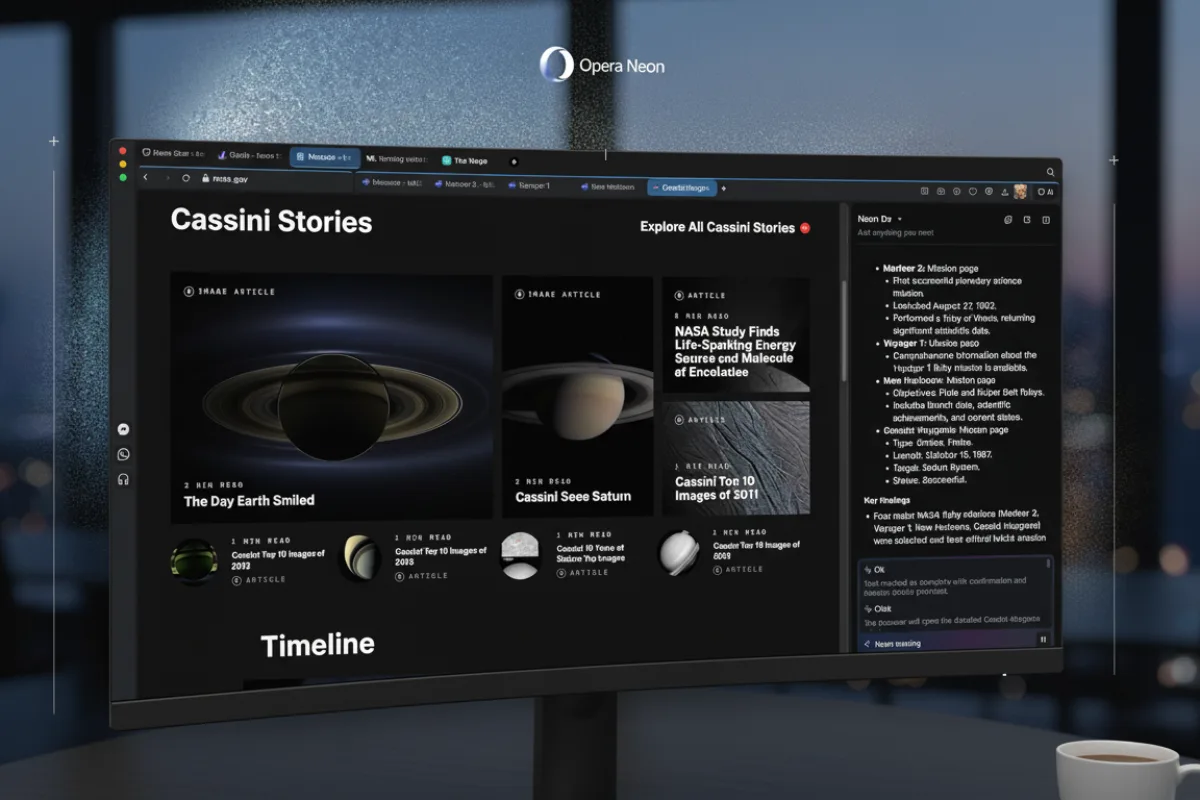Introduction
Opera today released Neon, a subscription, AI browser that uses agentic tools to perform tasks inside web pages — from autofilling forms to summarizing content and running multi-step workflows. Neon is positioned to compete with other AI browsers and agent platforms.
[related url=”https://tekznology.com/elon-musk-unveils-grokipedia-xais-bid-to-build/”]
What Neon offers at a glance

Neon’s standout feature, Neon Do, lets the browser execute actions locally across tabs and automate workflows called “Tasks” and “Cards.” Opera emphasizes privacy by running many operations on-device rather than routing all data to cloud AI services. Early access is rolling out to invited users under a paid model.
Why the market cares

Browsers that act (not just answer) could save time for power users and teams. But subscription pricing and early-scoped availability mean Neon will first target professionals and AI-heavy users. Competitors such as Perplexity’s Comet, Arc’s Dia and built-in AI features in Chrome will shape how quickly Neon gains mainstream traction.
[related url=”https://tekznology.com/disney-issues-cease-and-desist-to-character-ai/”]
Limitations and risks

- Agent mistakes: Any automated agent can mis-execute tasks; Opera warns users to verify results.
- Privacy trade-offs: On-device processing reduces cloud exposure but not all features run locally; read the privacy terms carefully.
Author note: I reviewed Opera’s announcement and independent coverage to explain Neon’s agentic pitch and pragmatic limits. Focused on features users can test today.
[related url=”https://tekznology.com/citigroup-lifts-ai-capex-forecast-hyperscalers/”]

